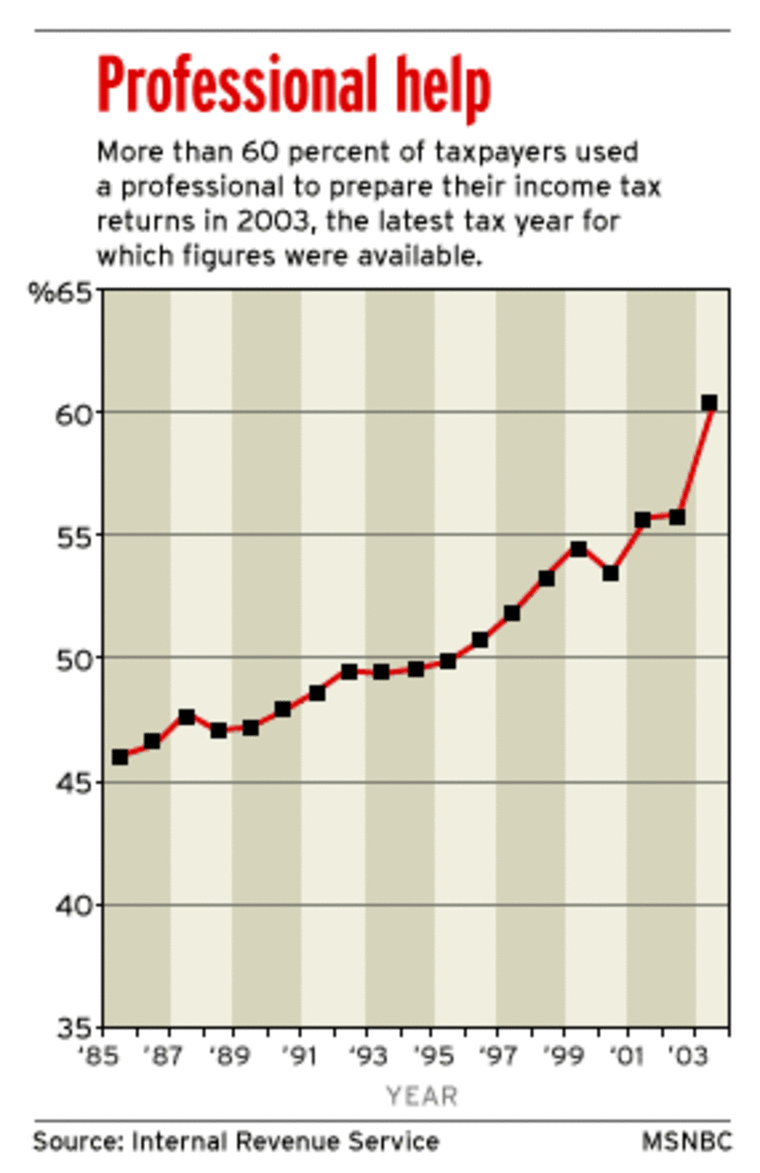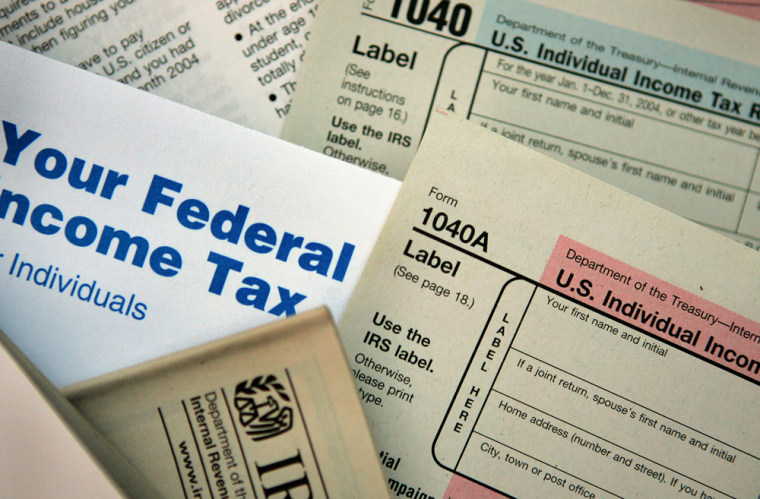Almost everyone agrees that our federal income tax system is far too complex, but as Tax Day approaches, the problem is only getting worse.
Over the past 20 years, the tax code has gotten steadily more complicated as Congress has made a staggering 15,000 changes -- an average of more than two a day. The enormous tax-cut packages of 2001 and 2003 only added to the confusion, introducing a wealth of new special tax breaks along with a variety of sunset and phase-out clauses that make long-term planning a challenge. In the past six years alone the IRS has had to add nearly 100 new tax forms, and the total number of pages required to define and explain the code has soared 42 percent to more than 66,000, according to the Cato Institute.
No wonder the days when most people prepared their own tax returns are long gone, and now more than 60 percent of us hire a professional to handle the details. What with the widening net of the alternative minimum tax, tax breaks for everything from education to hybrid cars, and deductions for mortgage interest, retirement contributions and state sales tax, wading into the Form 1040 is a daunting prospect.
"Our tax code is rewritten so often it should be drafted in pencil," members of President Bush's Tax Reform Panel said in submitting their report late last year. Yet that report was virtually dead on arrival at the White House, as an administration left with a scarce supply of political capital declined to take on the panel's recommendations in an election year.

"Must be in a closet somewhere, on a shelf somewhere," grumbled panel Vice Chairman John Breaux, a former Democratic senator, after President Bush omitted any mention of it in his State of the Union address. Bush economic adviser Allan Hubbard later confirmed that tax reform is off the table for this year, blaming a lack of support on Capitol Hill.
The idea of simplifying the nation's tax system has broad public support, with 80 percent favoring major changes or a complete overhaul in one recent poll, and 52 percent saying they would give up some deductions to simplify federal taxes.
By itself, the complexity of the nation's tax system imposes high costs on businesses and individuals. Just complying with the system through record-keeping, education and compliance costs the nation $265 billion, or 2 percent of the gross domestic product, said Chris Edwards, director for fiscal policy studies at the Cato Institute.
"I think a bigger cost is in the way complexity interferes with economic planning," he said. On the business side, tax complexity has created an entire industry devoted to aggressive tax avoidance. National Taxpayer Advocate Nina Olson, an internal IRS watchdog, talks of an "endless cycle" in which the complexity of the tax code creates loopholes that are exploited, leading to yet more regulations.
For individuals, the federal tax code offers a confusing array of hard choices for planning how to finance long-term objectives like retirement and college education.
Just think of the new Roth 401(k) retirement accounts now being offered by some large employers alongside the conventional 401(k) option. Taxpayers essentially are being asked to predict whether they expect federal tax rates to increase or decrease between now and the time they retire. If rates rise, prepaying taxes now through a Roth option might make more sense than deferring tax payments through the conventional plan.
The devil of any reform plan is always in the details, as even a perfectly "revenue-neutral" program will create winners and losers, which explains why a bitterly divided Congress has little interest in taking on the tax code.
For example, one reason the Tax Reform Panel's ideas went so quickly down the memory hole is that the members of the bipartisan group had the temerity to take on one of the most sacred cows of the middle-class taxpayer, the mortgage interest rate deduction. While the panelists proposed eliminating the deduction, they also suggested replacing it with a "home credit" that would benefit 80 percent of homeowners, compared with 54 percent under the current system.
All things being equal, the new system would amount to a $1,100 tax hike for a typical middle-income homeowner in the third year of a $180,000 fixed-rate mortgage. But higher-income homeowners would see their benefits reduced more severely, as the tax credit would be capped at about $412,000 in mortgage principal, down from the current limit of $1.1 million. Interest paid on home equity loans and second homes would no longer be eligible for deduction.
As an incentive for high-income and a growing number of middle-income taxpayers, the panel's recommendations would have eliminated the alternative minimum tax. The AMT, a parallel system that is a major contributor to the complexity of the tax code, already affects 21 million of the nation's 130 million taxpayers and is on track to ensnare 52 million by 2015.
The panel's proposals attracted the full fury of the nation's powerful real estate lobby, which warned that "to even mention reducing the tax benefits of homeownership could endanger property values" and said that if enacted the proposal could result in a 15 percent decline in home values in the costliest neighborhoods.
Tax analysts from across the political spectrum found plenty to like in the commission's recommendations, including the proposed consolidation of a confusing array of tax benefits for parents and the working poor. Yet the panel, chaired by former Sen. Connie Mack, R-Fla., had no real political heavyweights, nor did it ever have the type of backing from either the White House or Capitol Hill leaders that would be required to do substantial tax reform.
In fact, no Congress has seriously attempted major reform since 1986, when President Reagan and the Democratic-led Congress reached a compromise deal that vastly simplified the income tax system, lowering the top rate from 50 to 44 percent while expanding the tax base by curbing some of the most egregious shelters. Many analysts believe it would require just that type of divided government to achieve the compromise needed for any new effort at tax reform to succeed.
